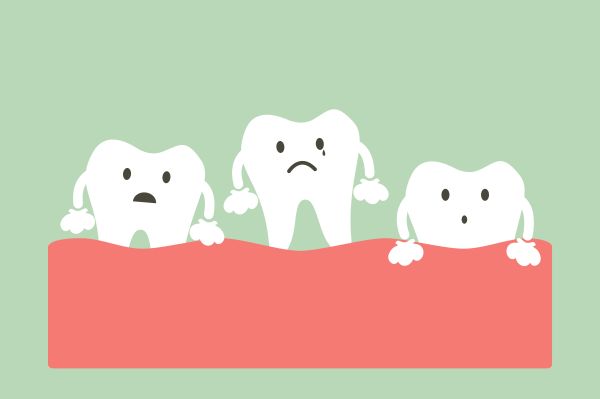Wisdom Teeth Removal: What to Know

Many people would shiver at the thought of wisdom teeth removal, probably because of the rumors they have heard about the procedure. But not to worry; wisdom teeth removal is a simple and easy process. The uncertainties surrounding the formation of wisdom teeth can also cast doubt on the need to extract them. Since wisdom teeth are the last to erupt later in life, many people do not have enough information to determine whether the wisdom teeth will be an issue, especially if they do not go for regular dental checkups. Understanding the process of wisdom tooth eruption can make dealing with the problem more manageable.
What to know about your wisdom teeth
Why is wisdom teeth removal necessary?
Unless you are experiencing pain, you may be confused about why the dentist suggested removing your wisdom teeth. Wisdom teeth are the last set of molars to erupt at the furthest part of the jaw. Many people do not have sufficient jaw length to accommodate the wisdom teeth and make them functional. Also, caring for the teeth could be bothersome and difficult because of their position in the mouth. This can cause tooth decay, gum disease and infections.
The second molars are vital for chewing food, but they may be adversely affected by an impacted wisdom tooth. In some cases of impaction, an opening is created in the gum tissue, trapping food particles, which will lead to decay and sometimes the loss of a vital tooth.
Wisdom teeth removal is best done when you are younger, first because the body has a greater ability to heal, and second, because people in their late teens or early twenties do not usually have complete root formation, which reduces the risk of harming adjacent structures such as the sinus and nerves.
Wisdom teeth removal: what it entails
Before removal, you will need to book an appointment with the dentist to discuss the details of the treatment and the anesthesia options. Most people opt for sedation anesthesia for the surgery. Since the procedure is more invasive than regular dental procedures like fillings, going to sleep is always a better option. This means you will not eat or drink anything for eight hours before the procedure. You would also need to have someone drive you home since you will not be in any condition to drive or operate machinery for another 24 hours.
When you go in for the procedure, you will be sedated and observed during the procedure for safety. Once you are unconscious, the oral surgeon will administer local anesthesia on the treatment area for two reasons: to numb the area and reduce the level of sedation, meaning faster recovery time, and to keep you at ease until you get home to take the prescribed painkillers before the anesthetic effects fade entirely. Afterward, the oral surgeon will remove the wisdom teeth.
Final note
After removing the tooth, gauze will be placed on the area to stop the bleeding, and you will need to bite on it and use ice packs to reduce swelling. Over the next couple of days, you need to eat only a soft diet and use your pain medications. Within a week, the soreness and jaw stiffness should have subsided, and you will be able to return to your usual routine. Additional visits will be necessary to check the condition of your oral cavity.
Request an appointment here: https://spectrumsurgical.net or call Facial Spectrum at (816) 524-4334 for an appointment in our Lee's Summit office.
Check out what others are saying about our dental services on Yelp: .
Recent Posts
Infections after dental procedures occur frequently and that is primarily due to a lack of education on how to avoid it, however, with the help of an oral surgeon, infections can be avoided in a few ways. Oral surgeons are dental professionals who focus on invasive procedures that are necessary in order to treat or…
Your facial surgeon will prepare you well before your jaw surgery. This invasive procedure can improve your appearance and relieve your pain. It can also enhance your dental health. Here are the important details that your facial surgeon would want you to know before your jaw surgery.The upper and lower jaws are important in completing…
Clinical studies show that the dental implant remains the gold standard of dental restorations. Implants can help bring back your smile and dental function. The right dental professional can perform the procedure without any issues. Here are the details on how an oral surgeon approaches a dental implant surgery.Choosing a dentist who has training and…
A jaw surgery can bring back your smile and dental function. This procedure can restore your self-esteem. It can even open doors for new opportunities in your personal and professional life. Knowing more about this procedure can help you prepare for it. Here are the details on how jaw surgery can help bring back your…


